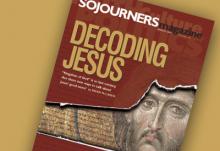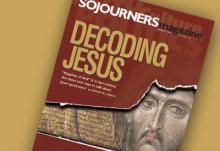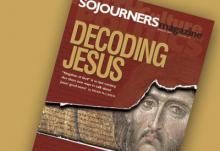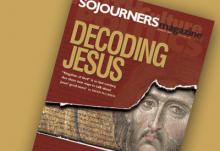Feature
Bumper stickers found in many college dormitories and church parking lots during the recent boycott of Taco Bell featured a Spanish-speaking Chihuahua—playing off the chain’s ads—turning down the fast- food chow to demand a penny more per pound for tomato pickers.
Heading the campaign was the Coalition of Immokalee Workers, a farm worker-led organization based in Immokalee, Florida, with more than 2,500 members, most of whom are Latinos, Haitians, and Mayan Indians. The nearly four-year boycott put worker concerns—low wages, poor working conditions, and discrimination—in front of many consumers and led to an agreement with Yum! Brands, Taco Bell’s parent company.
The campaign is one of several recent examples of tapping into the power of consumers. Through education, boycotts, and other methods, farm workers can make those who eat the products they grow and pick aware of the conditions they experience—and ask for their help in changing those conditions.
“The life of an agricultural worker is one of exploitation,” said Lucas Benitez, a worker and organizer with the coalition who came to the U.S. from Mexico as a teenager. Farm laborers work long hours, with no benefits, health care, or overtime pay, he said. “The imbalance of power is tremendous.”
The agreement reached by the coalition and Yum! Brands established important precedents of increasing wages coming down the supply chain and involving workers in the monitoring of conditions in the fields, said Brigitte Gynther, an organizer with the coalition. The change for workers has been immediate, Benitez said, after more than 20 years of receiving the same salary. Each week, he said, “depending on how much they harvest, they receive between $15 and $40 more.” Also essential, Gynther said, are the safeguards against what the coalition believes to be inhumane working conditions the pickers have suffered.

Fearful of harsh border enforcement legislation and trapped in poverty, many immigrants turn to churches for help.

One set of faith-based principles for immigration reform is being promoted by the No More Deaths coalition, based in Tucson, Arizona.
In addition to providing services to the elderly, We Are Family helps volunteers tap in to the history of African-American communities in Washington, D.C. Through casual visits as well as oral history projects, volunteers sometimes are able to uncover accounts of major events in U.S. history.
We Are Family volunteers have given Belva Simmons, 78, who lives in D.C.’s North Capitol neighborhood, a chance to tell the story of her career as a congressional staff person and her role in passing the Civil Rights Act of 1964.

The vision of the Global Christian Forum is simple but bold: Can the four main “families” of the Christian community—Orthodox, historic Protestant, evangelical/pentecostal, and

100 years after Dietrich Bonhoeffer's birth, he still has much to teach us.

As Christianity explodes across the globe, it is taking new forms and moving away from traditional expressions.

The journey of Christian Churches Together in the USA began in September 2001 when church leaders representing the wider spectrum of the Christian community articulated a vision for a place of fe

Reza Aslan, a Tehran-born Muslim, joined his high school's Young Life group to become a Christian, then got kicked out. Now he's one of the top spokespersons for progressive Islam in America.

The quest to save the ivory-bill represents a desire with which many evangelical Christians may connect.

How community-based investing transforms individuals - and religious institutions.




